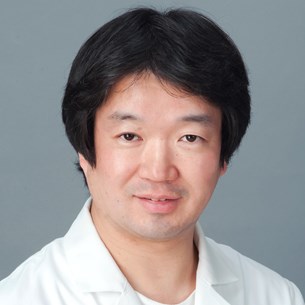Meeting
2014 ASCO Annual Meeting

National Cancer Center Hospital East, Chiba, Japan
Yoichi Naito , Akira Kawai , Nobuhito Araki , Toshifumi Ozaki , Hideshi Sugiura , Yasuo Yazawa , Hideo Morioka , Akihiko Matsumine , Masahide Hiraiwa , Shun Asami , Kazuo Isu
Background: Eribulin mesylate is a non-taxane microtubule dynamics inhibitor that has demonstrated an activity in pts with various types of tumor. The efficacy and safety of eribulin mesylate were evaluated in pretreated pts with advanced STS. Methods: This was an open-label, multi-center, single-arm, phase II study in Japanese pts with advanced STS. Pts with high or intermediate grade STS had received at least one standard chemotherapy, and also had ECOG performance status 0-1. Progressive disease had to be documented within the last 6 months. Eribulin mesylate (1.4 mg/m2) was administered as a 2-5 minute intravenous infusion on day 1 and 8 of 21-day cycle. The primary endpoint was the progression-free rate at 12 weeks (PFR12wks) in 2 independent strata of pts with STS: adipocytic (ADI) or leiomyosarcoma (LMS), and histological types other than ADI/LMS (OTH). Secondary endpoints included response, survival and safety. PFR12wks and responses were assessed by independent review using RECIST criteria. Results: A total of 52 pts were enrolled, and 51 pts received eribulin (ADI:16 pts, LMS: 19 pts and OTH:16 pts). Median age was 52 (range: 28-73) and 13 pts (25.5%) was intermediate grade and 38 pts (74.5%) high grade. Fifty-one pts (100.0%) had received anthracycline and 36 pts (70.6%) ifosfamide as prior therapeutic chemotherapy. The PFR12wks in ADI/LMS was 60.0% (21/35 pts; 95% CI 42.1-76.1%), OTH 31.3% (5/16 ; 11.0-58.7), and all subtypes (ALL) 51.0% (26/51 ; 36.6-65.2). The median progression free survival in ADI/LMS was 5.5 months (mo) (95% CI 2.8-8.2 mo), OTH 2.0 mo (1.2-4.1), and ALL 4.1 mo (2.6-5.6). There was no complete response (CR) or partial response (PR) in this study. Stable disease (SD) in ADI/LMS was 80.0%, OTH 50.0%, and ALL 70.6%. The clinical benefit rate (CR + PR + SD>11 weeks) in ADI/LMS was 74.3%, OTH 50.0%, and ALL 66.7%. 1-year overall survival rate in ADI/LMS was 60.0%, OTH 50.0% and ALL 56.9%. The most frequent treatment-related Grade 3 or above toxicities were neutropenia (86.3%), leukopenia (74.5%), lymphopenia (31.4%), anaemia (11.8%) and febrile neutropenia (7.8%). Conclusions: Eribulin has shown clinical activity in advanced pre-treated STS patients and it is well tolerated with no new safety signals. Clinical trial information: NCT01458249.
Disclaimer
This material on this page is ©2024 American Society of Clinical Oncology, all rights reserved. Licensing available upon request. For more information, please contact licensing@asco.org
2014 ASCO Annual Meeting
Poster Session
Sarcoma
Sarcoma
Soft Tissue Tumors
NCT01458249
J Clin Oncol 32:5s, 2014 (suppl; abstr 10567)
10.1200/jco.2014.32.15_suppl.10567
10567
274
Abstract Disclosures
2024 ASCO Annual Meeting
First Author: Jie Liu
2021 ASCO Annual Meeting
First Author: Makoto Endo
2024 ASCO Annual Meeting
First Author: Qinglian Tang
2023 ASCO Annual Meeting
First Author: Peter Reichardt